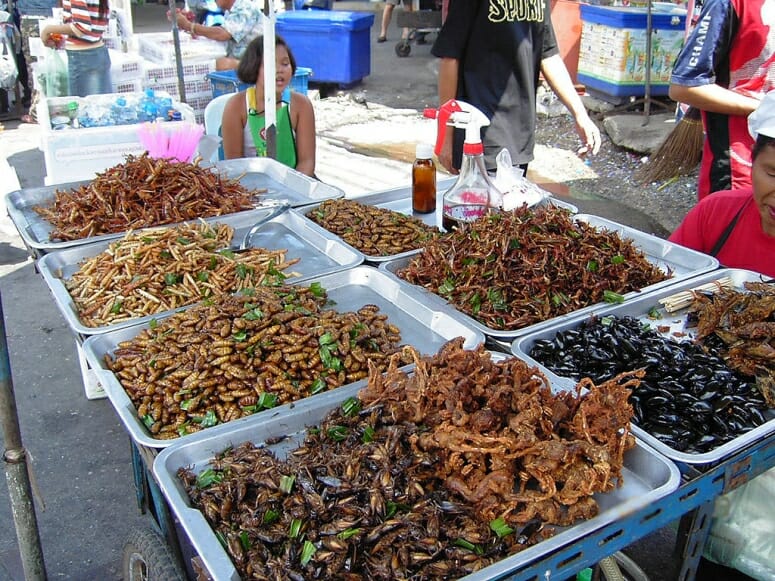Consuming crickets can help support the growth of beneficial gut bacteria and that eating crickets is not only safe at high doses but may also reduce inflammation in the body. More than 2 billion people around the world regularly consume insects, which are also a good source of protein, vitamins, minerals and healthy fats. The research team was interested in documenting for the first time via clinical trial the health effects of eating them.
This study is important because insects represent a novel component in Western diets and their health effects in human populations haven't really been studied. Gut microbiota and its relationship to human health, it's important to establish how a novel food might affect gut microbial populations. Raising insects for protein not only helps protect the environment, but also offers a more healthful option than meat in many wealthy countries with high-meat diets.
Crickets, like other insects, contain fibers, such as chitin, that are different from the dietary fiber found in foods like fruits and vegetables. Fiber serves as a microbial food source and some fiber types promote the growth of beneficial bacteria, also known as probiotics. The small trial probed whether insect fibers might influence the bacteria found in the gastrointestinal tract.
For two weeks, 20 healthy men and women between the ages of 18 and 48 ate either a control breakfast or a breakfast containing 25 grams of powdered cricket meal made into muffins and shakes. Each participant then ate a normal diet for a two-week "washout period." For the following two weeks, those who started on the cricket diet consumed a control breakfast and those who started on the control diet consumed a cricket breakfast.
Every participant served as their own control for the study and the researchers were blinded with respect to which diet each participant was on at any given time.
The researchers collected blood samples, stool samples and answers to gastrointestinal questionnaires immediately before the study began, immediately following the first two-week diet period and immediately after the second two-week diet period.
Participants' blood samples were tested for a host of health measures, like blood glucose and enzymes associated with liver function, and also for levels of a protein associated with inflammation. The fecal samples were tested for the byproducts of microbial metabolism in the human gut, inflammatory chemicals associated with the gastrointestinal tract, and the overall makeup of the microbial communities present in the stools.
Participants reported no significant gastrointestinal changes or side effects and the researchers found no evidence of changes to overall microbial composition or changes to gut inflammation. They did see an increase in a metabolic enzyme associated with gut health, and a decrease in an inflammatory protein in the blood called TNF-alpha, which has been linked to other measures of well-being, like depression and cancer.
Additionally, the team saw an increase in the abundance of beneficial gut bacteria like Bifidobacterium animalis, a strain that has been linked to improved gastrointestinal function and other measures of health in studies of a commercially available strain called BB-12.
But, the researchers say, more and larger studies are needed to replicate these findings and determine what components of crickets may contribute to improved gut health. This very small study shows that this is something worth looking at in the future when promoting insects as a sustainable food source.
